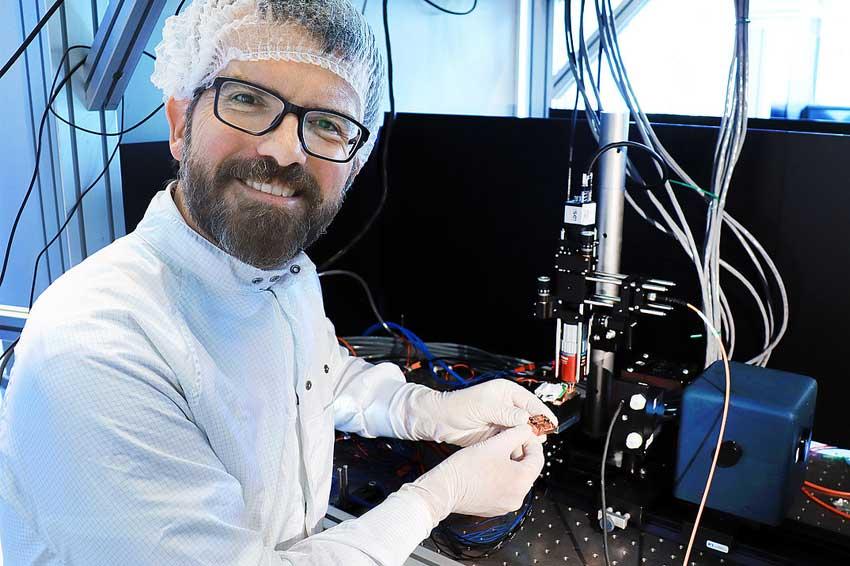German-British collaboration in high-performance photonics
05.09.2024 - Berlin-based Ferdinand-Braun-Institut and the University of Glasgow deepen their cooperation, focusing on ultrahigh-power photonic applications.
Pushing the limits of high-power diode lasers is just one of the ambitious goals of the cooperation between the Ferdinand-Braun-Institut (FBH), Berlin, Germany and the University of Glasgow, United Kingdom (UK). The partnership which began in 2020 has since evolved into a robust and dynamic collaboration. It is now enhanced through the newly established visiting professorship of Paul Crump from FBH in Glasgow.
Dr Paul Crump, the head of FBH’s high-power diode lasers lab, assumes the role of a visiting professor of photonics at the James Watt School of Engineering at the University of Glasgow in August 2024. He works closely with Prof Stephen Sweeney’s group, fostering collaboration between the two institutes.
The visiting professorship will serve as a catalyst for joint research initiatives and funding proposals, while also exploring new avenues for researcher mobility between Glasgow and Berlin. Through this role, Paul Crump, in collaboration with Stephen Sweeney, will connect British and German researchers and industry, thereby enhancing the ties between the German and UK photonics and semiconductor communities.
Additionally, the visiting professorship will focus on supporting the education and employability of students in both the UK and Germany. This includes creating opportunities for bilateral student exchanges between the FBH in Berlin and the University of Glasgow. Paul Crump will also contribute to the supervision and development of masters, doctoral students, and early-career researchers. Moreover, he will deliver guest lectures to students at Glasgow, emphasizing the critical role of semiconductor and photonics technologies.
Contact
Ferdinand-Braun-Institut, Leibniz-Institut für Höchstfrequenztechnik
Gustav-Kirchhoff-Str. 4
12489 Berlin
Germany
+49 30 63922-600






